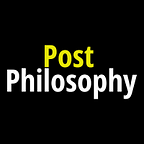Camus on the malleability of mankind
“Blessed are the hearts that can bend; they shall never be broken.”
After a long rainy day at work, Camus rushes out of the office and stands on the sidewalk waiting for the afternoon bus. As the rain drops bombard Camus’ skull, he suddenly opens himself to the gentle indifference of the world. Camus gets on the bus and takes a seat at the back, he lights his red Gauloises with his red lighter and listens to Donald Trump’s speech on the radio: “… in less than two years my administration has accomplished more than almost any administration in the history of our country.” On Camus’ right sits a blonde girl named Brigitte Bardot, Camus turns his head towards her and remarks: “Every time I hear a political speech I am horrified at having, for years, heard nothing which sounded human. It is always the same words telling the same lies. And the fact that men accept this, that the people’s anger has not destroyed these hollow clowns, strikes me as proof that men attribute no importance to the way they are governed; that they gamble — yes, gamble — with a whole part of their life and their so called vital interests.” Brigitte nods her head and says nothing in response.
Twenty minutes later, Camus gets off the bus and goes into a coffee shop called Kushari to meet Emma Kaltum over a cup of coffee. Emma sat by the window staring outside through her black sunglasses in an attempt to appreciate the November rain. She was sipping Hazelnut Latte and smoking slim cigarettes. Camus came in, and as he approached her, he was thinking of a cool opening line, instead of saying “Good evening” he said: “There is not love of life without despair about life.” Emma looked at Camus with sad burning eyes and asked him: “And what makes you say that Camus?” Camus takes a seat, lights another Gauloises, and announces: “The absurd is the essential concept and the first truth.” And then he stares into Emma’s eyes and tells her “Emma, today I opened myself to the gentle indifference of the world.” In which Emma replied: “Tell me more Camus.” Camus takes a whiff of the rain’s smell, holds Emma’s hands and tells her: “I walked out of the office today and realized that some people expend tremendous energy merely to be normal; so what if I quit my job at the office and spend a couple of years playing the trumpet on the sidewalk?! Don’t you see that normality is always changing? And what amazes me is that people are always yearning to return to ‘normality’ whatever that means. I can negate everything of that part of me that lives on vague nostalgias, except this desire for unity, this longing to solve, this need for clarity and cohesion. I can refute everything in this world surrounding me that offends or enraptures me, except this chaos, this sovereign chance and this divine equivalence which springs from anarchy. I don’t know whether this world has a meaning that transcends it. But I know that I do not know that meaning and that it is impossible for me just now to know it. What can a meaning outside my condition mean to me? I can understand only in human terms.”
Emma listened to Camus carefully and replied by saying: “Release my hands, give me freedom.” followed by “Where are you? And where is love?” in which Camus replied hastily, as if reciting a poem: “The misery and greatness of this world: it offers no truths, but only objects for love. Absurdity is king, but love saves us from it.” And then, Camus got up to leave, put his rain coat on and as he was walking away from Emma he turned around and told her: “Blessed are the hearts that can bend; they shall never be broken.”
Instagram:
https://www.instagram.com/post.philosophy/Youtube:
https://www.youtube.com/PostPhilosophySupport me on
Patreon: https://www.patreon.com/postphilosophy
